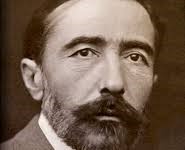26 May 2022
Immigrants in Kent
Yanko Goorall’s story.
By Neil Tidmarsh

Cross-Channel migration might not be front page news any more, but newspapers this week nevertheless reported record numbers of migrants stumbling ashore on the Kent coast near Dover in recent days.
You might be familiar with Yanko Goorall’s story. Born and bred in an impoverished community in the remote Carpathian mountains of eastern Europe, he was ensnared by ruthless and well-organised people-traffickers when they arrived in his village with promises of a prosperous new life in a prosperous new world – for those who were prepared to pay for their services. Most couldn’t afford it, but somehow Yanko’s family scraped enough money together – his father “sold an old cow, a pair of piebald mountain ponies of his own raising and a cleared plot of fair pasture land on the sunny slope of a pine-clad pass.” In return, Yanko promised to send money home twice a year from that prosperous new world.
A long and hazardous journey across the length and breadth of continental Europe followed. He had nothing but “the clothes in which he had left his home” and a small bundle of possessions which he had to guard carefully from the thieves among the other migrants. He slept on benches, on litters of straw, and on the stone of railway station floors. Then he and the people-traffickers’ other clients were herded onto a crowded and rickety boat and packed in tight. During the night-voyage the boat collided with another vessel and went down in the Channel just off the Kent coast.
Yanko somehow survived the wreck and was cast ashore in the middle of the night a few miles south of Dover. In the darkness he stumbled his way inland, an illegal immigrant, and for the next few days he alternately hid himself away in fear or desperately begged for food and assistance from anyone he met in that part of rural Kent. Filthy, bedraggled and speaking no English, he was taken for a tramp or a drunkard or a lunatic by the people he encountered: boys threw stones at him; a milkman, thinking he was trying to steal his milk cart, struck him in the face and knocked him down; a woman out walking a baby in a pram attacked him with her umbrella when he approached “babbling aloud in a voice that was enough to make one die of fright”.
Eventually, however, he found refuge of sorts in a farmhouse. In time he found work as an agricultural labourer, married a local girl and became the owner of his own house, integrating to a certain degree in the agricultural community in which he’d landed.
Yanko Goorall’s story would be all too ordinary (perhaps sadly so) if it was a contemporary one, but it isn’t – it is in fact getting on for one hundred and twenty-five years old. And what makes it all the more out of the ordinary – and extraordinarily prescient, even prophetic – is that it’s a work of fiction; it is of course Joseph Conrad’s literary gem Amy Foster, which appeared in his Typhoon and Other Stories of 1903. So the current events which end up as news from the Kent coast today look like a case of twenty-first century life imitating late nineteenth / early twentieth century art.
Conrad was politically conservative, but he doesn’t concern himself with the legal or moral rights and wrongs of illegal immigration here. This immigrant is certainly an asset to his host community; he is a good farm-worker, and he saves his boss’s infant daughter from drowning (and is rewarded with a cottage and an acre of ground – this particular event is no doubt Conrad’s metaphor for the essential and valuable service provided by immigrants in general). But Conrad’s real concern is simply the desperate plight of his poor migrant. He shows an unconditional sympathy and compassion for Yanko not only when he is at the mercy of people traffickers, but even more keenly when he is at the mercy of the inhabitants of rural Kent. The English in this story are simply too stolid, materialistic and unimaginative to understand Yanko or to see him as anything other than a weird foreigner. He is too physically different (slight and dark and light-footed in contrast to their heaviness, slowness and fairness), too quick, too “excitable”, too Catholic, too prone to singing and dancing to be accepted by the dull inhabitants of the dull rural community in which he finds himself.
Only the girl who becomes his wife – the Amy Foster of the title – has enough imagination (not much, but just enough) to feel compassion for Yanko and to find his ‘otherness’ glamorous enough to fall in love with. But in the end even she is scared and confused by his foreignness and abandons him at a critical moment. There is no happy ending to Amy Foster – it’s a rather grim and tragic story. Yanko is never really accepted by the community and his alienation is pretty well complete despite his apparent integration.
Conrad was himself a refugee and an immigrant, of course, also from Eastern Europe, also eventually settling in Kent. He was born of Polish parents in Ukraine ruled by Tsarist Russia. His parents were ardent Polish nationalists and the whole family was exiled to a Russian penal colony for their ‘anti-Russian’ activities. There his parents died when he was only six years old, and he was thereafter brought up by an uncle. He escaped to sea when he was sixteen, first in French and then in British ships. At the age of thirty he became a British national on obtaining his Master’s certificate from the British Merchant Marine. Ten years later – after more than two decades travelling around the world – he left the sea to follow a career as a novelist, and settled in rural Kent, in a rented farm in the hills just inland from the coast, exactly where Amy Foster is set and exactly where today’s cross-Channel migrants follow in Yanko Goorall’s wake.
As a European writer at the time of imperialism and colonialism, Conrad has almost inevitably attracted charges of racism and colonialism in recent years. Charges which are puzzling in many ways: he is a detached globalist, an ironic and sceptical commentator on his times and on the human race; if the plight of, say, the Africans in Heart of Darkness or the Chinese in Typhoon is peripheral to his stories, it doesn’t mean he approves of it or is even indifferent to it; far from it, his disapproval is clear. (And if he had attempted to get inside and beyond their “otherness”, he would perhaps be laying himself open to accusations of appropriation, of a kind of literary ‘black face’, these days).
Revealing a ‘heart of darkness’ in Africa in his most famous story is indeed problematic, to say the least; but it’s as well to bear in mind that Conrad’s ‘heart of darkness’ doesn’t necessarily have a fixed geographic location. Conrad is critical of Western civilisation in a way in which he is rarely critical of other cultures and civilisations he encountered around the world; it’s ‘civilised’ Westerners who often export darkness to other parts of the globe. The first ‘heart of darkness’ mentioned in the story of that name is in fact located in Britain, on the Thames, on the site of London.
And in Amy Foster his protagonist – an innocent people-trafficked migrant washed up on the coast of Kent – finds a heart of darkness waiting for him in England, among the English. It’s like a Heart of Darkness in reverse. And Yanko Goorall is like a tragic time-traveller, shipwrecked from the twenty-first century.
Cover page image: photo of Joseph Conrad by George Charles Beresford (Store Norske Leksikon / Creative Commons)


